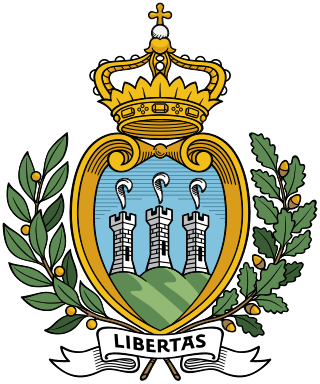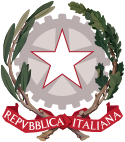
A constitutional referendum was held in France on 5 May 1946. Voters were asked whether they approved of a new draft Constitution proposed by the Constituent Assembly elected in 1945.
A four-part referendum was held in Hungary on 26 November 1989. Voters were asked whether the President should be elected after parliamentary elections, whether organisations related to the Hungarian Socialist Workers' Party should be banned from workplaces, whether the party should account for properties owned or managed by it, and whether the Workers' Militia should be dissolved. All four proposals were passed, the first narrowly by 50.1% of voters, and the remaining three by 95% of voters. Voter turnout was 58.0%.

A seven-part abrogative referendum was held in Italy on 15 June 1997. Voters were asked whether they approved of the repealing of laws on topics including privatisation, conscientious objectors, hunting, the judiciary and journalists, as well as whether the Ministry of Agrarian Politics should be abolished. Although all seven proposals were approved by voters, the voter turnout of 30% was well below the 50% threshold and the results were invalidated.

A seven-part abrogative referendum was held in Italy on 21 May 2000. Voters were asked whether they approved of the repealing of laws on topics including election funding, the electoral system, the judiciary, employment and union dues. Although all but one of the seven proposals were approved by voters, the voter turnout of 32% was well below the 50% threshold and the results were invalidated.

A four-part referendum was held in Lithuania on 20 October 1996 alongside the first round of parliamentary elections. Voters were asked whether they approved of three amendments to the constitution and whether money from the sale of state property should be used to compensate those who lost their Soviet-era savings due to inflation. The three constitutional amendments would reduce the number of members of the Seimas, fix the date for elections to be in the spring, and to reserve at least 50% of government expenditure to social spending.

A referendum was held in San Marino on 26 October 1997. Voters were asked whether they approved of a proposal that any corporation buying, administering or selling land and property would have to be a public company. It was approved by 88.1% of voters.
A four-part referendum was held in Switzerland on 11 May 1884. All four were rejected by voters.
Two referendums were held in Switzerland in 1887. The first was held on 15 May, asking voters whether they approved of a federal law on spirits, and was approved by 65.9% of voters. The second was held on 10 July, asking voters whether they approved of an amendment made to article 64 of the federal constitution, and was approved by 77.9% of voters and 20.5 cantons.
A referendum on accident and health insurance was held in Switzerland on 2 October 1890. Voters were asked whether they approved of a federal resolution on amending the constitution with regards to accident and health insurance. It was approved by a majority of voters and cantons.
A referendum on animal protection was held in Switzerland on 20 August 1893. Voters were asked whether they approved of prohibiting butchering without the animals being anaesthetised. The proposal was approved by 60.1% of voters and a narrow majority of cantons.
A referendum on a war tax was held in Switzerland on 6 June 1915. Voters were asked whether they approved of amending the constitution to introduce a one-off war tax during the First World War, which Switzerland remained neutral. It was approved by a large majority of voters and all cantons, the first time a referendum had been passed in every canton.
A referendum on alcohol was held in Switzerland on 9 March 1941. Voters were asked whether they approved of a popular initiative for changing the alcohol order. The proposal was rejected by 59.8% of voters.
A referendum on the armed forces was held in Switzerland on 3 November 1907. Voters were asked whether they approved of the organisation of the federal armed forces. The proposal was approved by 55.2% of voters.
A referendum on insurance was held in Switzerland on 4 February 1912. Voters were asked whether they approved of a federal law on health and accident insurance. The proposal was approved by 54.4% of voters.
A referendum on employment protection was held in Switzerland on 17 February 1924. Voters were asked whether they approved of an amendment to the federal employment protection law. The proposal was rejected by 57.6% of voters.
A referendum on public order was held in Switzerland on 11 March 1934. Voters were asked whether they approved of a federal law on maintaining public order. The proposal was rejected by 53.8% of voters.
A referendum on unfair competition was held in Switzerland on 29 October 1944. Voters were asked whether they approved of a new federal law on unfair competition. The proposal was approved by 52.9% of voters.
A referendum on the sugar industry was held in Switzerland on 14 March 1948. Voters were asked whether they approved of a federal resolution on the reorganisation of the Swiss sugar industry. The proposal was rejected by 63.8% of voters.
A double referendum was held in Switzerland on 15 May 1927. Voters were asked whether they approved of amending article 30 of the constitution and a federal law on car and bicycle traffic. The constitutional amendment was approved by voters, whilst the traffic law was rejected.
Two referendums were held in Switzerland during 1928. The first was held on 20 May, asking voters whether they approved of amending article 44 of the constitution regarding measures against foreign infiltrators, and was approved by a majority of voters and cantons. The second was held on 2 December, asking voters whether they approved of the "Kursaalspiele" popular initiative on gambling, and was also approved.




